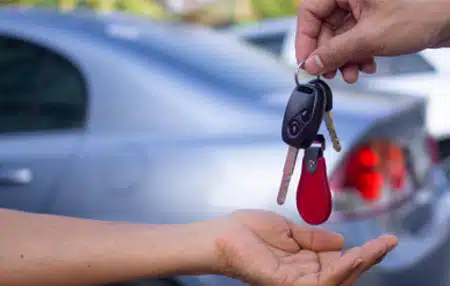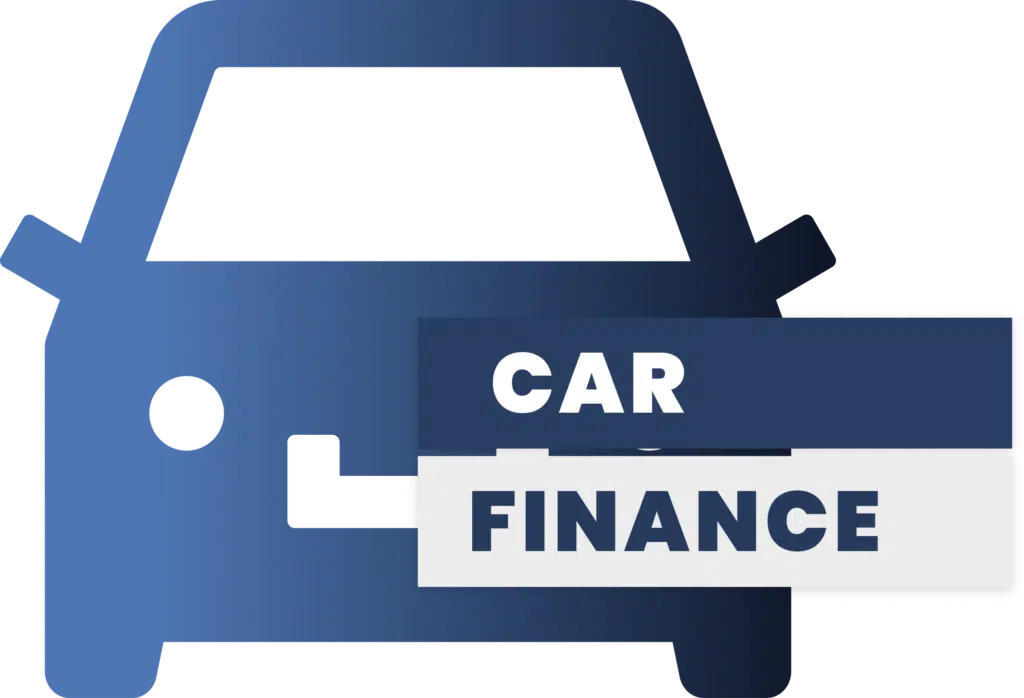

Car Finance debts are a non-priority debt related to the lease/loan purchase of your vehicle. If you are falling behind on your car loan repayments there are a number of steps that you can take to get help.
Car Finance Debt
Car loan debt is any debt or outstanding payments related to the purchase of your car. The terms and repayment conditions of your car loan can differ depending on the financing option you choose, and this can affect how your loan is repaid.
What type of car loan do I have?
Hire Purchase
In a hire purchase contract, your loan provider owns the vehicle and essentially lets you use the car while you make monthly payments towards it. The car only officially becomes yours once you reach the end of the repayment period. This means if you’re unable to keep up with payments, the loan is secured against your car and so your vehicle can legally be returned to the financer.
Personal Loan
Often a personal loan is taken out to pay for a vehicle. A personal loan is unsecured and as the vehicle is paid for with the loan, you own the vehicle outright and pay the loan back after the purchase. This means that if you’re unable to repay, your car ownership will not be affected (unless it’s seized if you’re court ordered to repay).
Lease/Hire
During a lease agreement, you hire out a car over a specified period of time. During this time, you make monthly payments for the vehicle. Once this contract is finished, the car returns to the dealership. During a hire agreement, the car remains the property of the dealership and any late/missed payments will result in the car being returned to the dealership.
Personal Contract Purchase (PCP)
A PCP contract works in a similar way to a lease/hire agreement; however, it differs significantly in the repayment terms. A PCP loan is taken out on a ‘guaranteed future value’ – this is calculated based on a number of factors including the car model, type, and your estimated mileage over the agreement period. Your repayments are based on the drop in value of the car itself within the repayment period.
This means if the car is worth £35,000 and the dealership estimates it will be worth £20,000 by the end of your contract (usually three years) you’ll pay £15,000 plus any interest that is applied. This means your repayments are paid based on the overall estimated value loss of the car over the time you have it.
Similar to a lease/car hire, you don’t own the vehicle, though you can opt to pay the remaining amount and purchase the car at the end of your PCP contract period.
Balloon Payment – If you wish to keep the car at the end of the hire purchase period, you’ll need to pay the remaining amount. This is known as a balloon payment, a lump sum of the remaining cost of the car.
Can I return my car if I’m unable to repay my hire purchase?
Return options can vary depending on the amount repaid. If you’re unable to keep up with repayments on your hire purchase or lease agreement, you can attempt to return your car to your dealership, but this will not result in your previous loan payments being returned. If you’ve repaid up to half of your outstanding amount, this may absolve you from needing to repay the remaining amount of your loan.
How many missed payments before my lender contacts me?
If you’ve fallen behind on your loan repayments, your lender will likely contact you after the initial missed payment or after two consecutive missed payments.
If you continue not to pay, they’ll contact you further and begin the arrears process. This can include adding interest and late fees to your outstanding amount.
Can I lose my car if I fail to keep up payments?
Yes, but there are exceptions. If you have entered into a finance agreement to pay for your car and fail to meet these monthly payments you could see your vehicle repossessed as a result.
However, some lenders will agree upon a repayment threshold that will bar the dealer from repossessing the car, though this doesn’t stop them from pursuing collections activity which could result in court action.
As mentioned, this will typically happen after two consecutive missed payments.
Can missing car finance payments affect my credit score?
As keeping up with finance payments can improve your credit score over time, failing to keep on top of payments can have a negative effect on your credit score and will be recorded through your credit history.
This can be viewed on your credit report and can ultimately affect if lenders are willing to give you credit in the future.
Can I go to jail for missing car finance payments?
In short, no. In most cases of unaffordable debt, legal action cannot be enforced in the form of jail time. There are only certain debts in which prison time is a possible outcome and even in these cases, it’s generally seen as a last resort and will only be taken when all other options have been provided to you.
Debts that can lead to jail time include:
- Council Tax
- Business Rates
- Child Maintenance arrears (CSA)
- Criminal Fines
Debts that can’t result in prison time are:
- Loans
- Mortgage/Rent Arrears
- Overdraft
- Utility Bills
As a car finance payment is a form of consumer loan, jail time isn’t likely to be a possibility for non-payment.
Note that this does not stop a creditor from taking legal action against you in pursuit of repayment and a loan provider can still take you to court and order a CCJ, or enforce repayment through bailiff action if you continue not to repay.
What is a logbook loan?
A logbook loan is a loan secured against a car you own rather than a loan taken out to purchase a car. It works similar to a secured loan and essentially allows you to take out credit by using your car as collateral to ensure the loan.
A logbook loan can be used to buy a car but is more often a way to borrow money using your current car. The value of your loan is usually based on the value of your car and factors such as model and current mileage.
While with a logbook loan you can still use your car as normal, if you fail to keep up with your loan repayments, this could potentially lead to you losing your car.
What car finance debt help is there?
If you’re struggling with unaffordable car finance debts, help is available. There are a number of ways that you can get help with your debts.
These include:
Breathing Space
If you’re struggling to deal with your car finance debts and need time to work out how to repay, you can apply for Breathing Space, a debt respite scheme introduced in 2021 to help vulnerable people get in control of their debts. Breathing Space is a government scheme that can allow you a grace period from your debts for up to 60 days, and longer for people currently going through serious mental health concerns.
It works in two ways:
Standard Breathing Space:
The standard form of Breathing Space grants legal protections from your creditors, halting repayment efforts and contact from your creditors for up to 60 days. Gaining Breathing Space can give you a chance to get ahead of your debts and more easily make plans towards repaying your debts by taking off the pressure of your current repayments.
Mental Health Crisis Breathing Space:
Mental Health Crisis Breathing Space is a type of debt respite reserved for people currently receiving treatment for a serious mental health crisis. It offers people in a vulnerable mental state stronger legal protections from their creditors and lasts for the duration of treatment, as well as a further 30 days (regardless of the length of treatment). To be eligible for this type of Breathing Space, you’ll need to provide evidence of your treatment from a qualified mental health professional.
Breathing Space can be a good option for those who need some space to prepare and get ahead of their debts allowing you the time to come up with a more permanent repayment solution free from the worry of trying to keep up with payments.
You can learn more about Breathing Space on our page.
Seek professional car finance debt advice
If you feel your car finance debt has become unmanageable, you should seek professional debt advice as soon as possible.
By contacting a debt advisor, you can get personalised debt advice that works for your specific debt situation, giving you the best advice for dealing with your current financial outlook.
It’s worth considering if a debt solution is the right option for you.
A debt advisor can help you work out the repayment plan that works best for your current debts, these solutions include:
Individual Voluntary Arrangement (IVA): An IVA is a debt solution that consolidates all of your current debts into one, affordable, monthly repayment. An IVA is a legally binding, formal debt plan and once agreed upon, you must keep to your monthly payments towards your debts. After making repayments for the predetermined time, usually between 5-6 years, all of your remaining debts will be officially written off and you are now free to begin rebuilding your finances again.
In Scotland the equivalent of an IVA is a Protected Trust Deed, while they function similarly, there are a some notable differences to keep in mind.
Debt Management Plan (DMP): A DMP is an informal debt option that allows you to repay your debts at a more agreeable rate over an extended period of time. It’s an agreement between you and your creditor with terms specified between what you both find to be fair. A DMP is an informal solution and is not legally binding.
To learn more about the different debt solutions available to UK residents, head over to our debt solutions page to learn what solution may work best for your debts.
For free debt advice from a professional debt charity, you can visit MoneyHelper.
To learn more about MoneyPlus and the service we provide click below.

Are you struggling with debt?
Whatever your situation, we have the solution for you.
We work with you to find the solution that best suits you and empower you to take back control of your finances.
So, get in touch today, so you can start living better with us.

